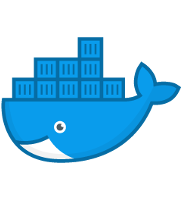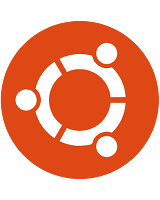Recommended roles for Docker interview questions
- Junior software developer
- Middle software developer
- Senior software developer
- Docker specialist
- Software engineer
- Junior DevOps engineer
- Middle DevOps engineer
- Senior DevOps engineer
How our Docker interview questions work
Unlike other developer tests, DevSkiller Docker interview questions are powered by the RealLifeTesting™ methodology. We create problems that mirror the real-world work Docker developers do. That way, we can see exactly how well they will cope in the role in reality. This unique way of testing provides valuable insight into a candidate’s coding skills, problem solving ability, and time-management skills.
Key features of our Docker coding tests
- Test your candidates’ coding skills and not just their academic knowledge
- Watch the candidate’s undertaking of tests in real-time, anywhere in the world
- RealLifeTesting™ methodology offers a greater user experience where candidates can use their own IDE, clone to Git, run unit tests, and access Stack Overflow/GitHub/Google for research
- Stringent anti-plagiarism tools ensure test accuracy
- Automated results that non-technical professionals can understand
- Docker tests available for all levels of expertise
Skills covered in our Docker online tests
- DevOps
- Docker
- Linux
- MariaDB
- MySQL
- SQL
- Ubuntu
- Bash
- System Administration
What is Docker?
Docker is a way to simplify and accelerate the workflow of a developer. The development of apps these days requires more than just writing code; it requires frameworks and architectures. Docker simplifies the complexities and quickens up the process. It does this predominantly by the introduction of containers.
Did you ever have the problem where a piece of software works for one person, but not another? Effectively Docker solves that problem for developers creating apps, with the introduction of industry standard containers in 2013. Containers are a standardized unit of software that allows developers to isolate their app from its environment. Nowadays, millions of developers use Docker as the standard, to build and share containerized apps.
Don’t worry if you’re not entirely clued up. One of the great advantages of DevSkiller’s Docker interview questions is that anyone can use them. You don’t need to be a Docker expert yourself, to be able to find the right person for your business.
Did you know you can customize your own Docker interview questions?
The DevSkiller online task wizard allows you to build your very own custom Docker test. Our customized tests allow you to define the languages you assess, the types of technology being tested types, question difficulty and much more. Testing is remote so you can send test invitations to candidates all over the world. The process of finding a new developer is made easy with our Docker interview questions.
Need proof that Docker interview questions are for you?
Making the financial decisions for your company can be stressful. It’s understandable and sensible to seek assurances before making an investment. We think our Docker tests will be a great asset to your recruitment process, but if you’re still unsure, take a look at what we did for one of our past customers:
ImpacTech
Founded in 2016, ImpacTech is an IT & services company that develops Business Intelligence solutions using Artificial intelligence. ImpacTech’s recruitment process used to be offline, which was problematic. It was difficult for their recruiters to accurately assess the skills of the candidates using interviews alone. It was also time-consuming.
With DevSkiller’s help, the process became automated. Developer testing went online and ImpacTech was able to cut down greatly on the amount of candidates who were invited in for interviews. Before DevSkiller, 198 interviews were carried out to make only 28 hires. DevSkiller managed to reduce the number of candidates who made it to the interview stage by 83%. Only the most qualified were invited for interviews. The whole process was made much more efficient and manageable and ImpacTech’s recruiters saved countless hours of time and effort spent looking for the right candidate.
Ivana Nikolic HR Manager at ImpacTech
“After switching to DevSkiller, non-viable candidates are now eliminated much earlier in the recruitment process, thus saving us valuable time. Additionally, automatic evaluation done by DevSkiller itself has also saved time”
Frequently asked questions
What is RealLifeTestingTM?
The RealLifeTestingTM methodology forms the basis of all DevSkiller interview questions. It allows us to provide recruiters with a 360 degree view of a candidate’s exact skillset. RealLifeTestingTM stems from the belief that the best way to evaluate a developer’s skills is by providing them with challenges that mirror the actual development work they’ll do. It might seem obvious, but until now that isn’t how developer testing happened. Previously candidates just recited algorithm patterns and code. Our Docker interview questions require candidates to build full project apps or add features to existing apps. To show their knowledge of coding, resources like Stack Overflow and to find solutions to the problems they encounter. The results you see provide recruiters with information about a candidate’s coding skill, decision making, code cleanliness, and problem-solving skills.
How are Docker interview questions evaluated?
Evaluation of each Docker test is carried out automatically. Our platform gets to work as soon as the candidate finishes their test. The results are then automatically generated into an easy to understand report. Candidates are evaluated on whether their solutions would run (an essential factor in all software development), any errors in the code and how it works in edge cases. We also implement a number of anti-plagiarism tools to ensure test accuracy and can compare the results to answers previously given in our system.
How do candidates take Docker interview questions?
The first advantage of a DevSkiller Docker test, is they are carried out remotely. This saves recruiters a great deal of time. The screening stage of candidates is as simple as sending out emails with test invites attached. Evaluation of the tests is automated, meaning you can just sit back and wait for the results.



